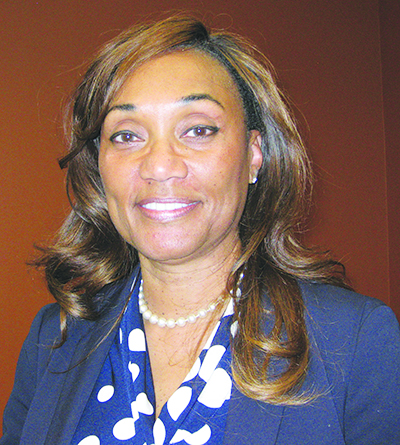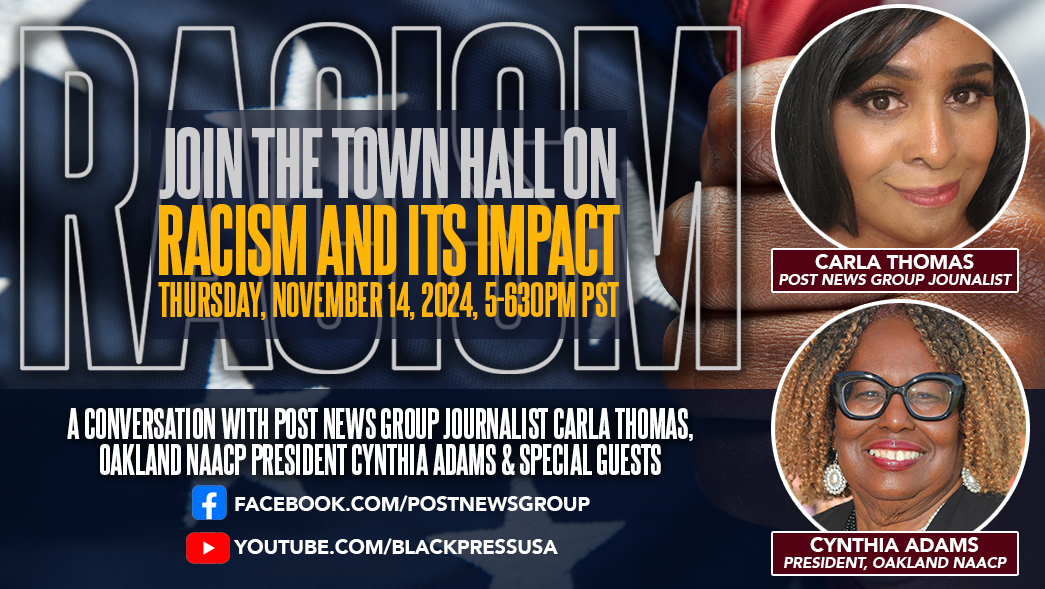Health
Racial Disparities in End-of-life Care; Many Are Unaware of Hospice Care (Part 2)
For those nearing death, hospice care can help alleviate the pain, discomfort, and suffering that often accompanies the dying process. But for many African-Americans, “hospice” is misunderstood and is equated with “hastening death” or “giving up.”
Many are either unaware of hospice care or lack a clear understanding of what hospice is. Keeping hope alive is a strong part of African-American culture and surviving difficult times. Even though there’s little chance of full recovery, African Americans are more likely than whites to choose life-sustaining measures.
Far fewer African Americans utilize hospice compared to whites. Among Medicare beneficiaries who died in 2010, 45.8 percent of whites used hospice compared to 34 percent of African Americans.
Survival at all costs is part of African-American culture that can be traced back to the days of slavery. The country’s long history of racism and poverty included unequal access to medical care. To this day, some suspect that the health care system is limiting their treatment options.

Rev. Cynthia Carter Perrilliat. Photo courtesy JoAnn Mar.
Rev. Cynthia Carter Perrilliat, a minister at the Allen Temple Baptist Church in East Oakland, often encounters this fear among her congregants, who she says ask: “Why should I trust that you’re going to do the right thing for me?”
“Statistics will tell you that in communities of color, particularly African-American communities, they always say ‘give me everything,’” says Perrilliat. “You know, all the treatment that there is, because typically we don’t get the treatment we need.”
Racial disparities and discrimination have long been part of America’s health care system from birth to death. Infant mortality rates are twice as high for African-Americans compared to whites. White Americans live 3.5 years longer than African-Americans.
Research further indicates that ethnic minorities are less likely to receive even routine …medical procedures and experience a lower quality of health services. At the end of life, racial disparities persist. Significantly fewer African-Americans, Asians, and Latinos enrolled in hospice compared to whites.
Rev. Perrilliat had her own positive experience with hospice many years ago when her father died of cancer. She realized that churches needed to become more active in end-of-life care. Seventy percent of African Americans are religious and churches are highly respected institutions.
“The faith community is one of the last bastions of resource out there where there is still some level of trust,” said Perrilliat.
In 2014, Perrilliat partnered with five churches, and started the Alameda County Care Alliance, a faith-based, non-profit providing critical support for predominantly African-American adults with advanced illness and their caregivers. It’s considered the nation’s first community-faith-health partnership of its kind. Ministers and faith leaders are trained to help their congregants prepare for the end of life and provide spiritual guidance and support related to their advanced illness.
At the heart of the ACCA’s program is its navigation system. Community care navigators are trained to provide support and connect participants with needed resources such as transportation, meals, medical services, and hospice care.
“You have to have a heart for people, a desire to help,” said Alexis Owens, one of the ACCA’s navigators, “We want to make sure they know we’re actively listening. We want them to trust us.”
In the last four years, the ACCA’s hub churches have grown from five to 14. Its medical partners include Kaiser Permanente, U.C. Davis School of Nursing, and the Public Health Institute. “We’re well over 2,500, close to 3,000 plus folks now in our third year,” said Perrilliat, “So there’s no lack of need, I promise you.” The ACCA hopes to reach beyond the African-American community and expand throughout the Bay Area. Major cities such as San Francisco, Los Angeles, Chicago, and New York have expressed interest in replicating the ACCA’s navigator system.
If the model spreads nationwide, it could go a long way in reducing racial disparities in end of life care. This story is part of a series examining racial disparities in accessing hospice and comfort care at the end of life. JoAnn Mar’s report was produced as a project for the USC Annenberg Center for Health Journalism’s 2018 California Fellowship.
Activism
LIVE! — TOWN HALL ON RACISM AND ITS IMPACT — THURS. 11.14.24 5PM PST
Join us for a LIVE Virtual Town Hall on the Impact of Racism hosted by Post News Group Journalist Carla Thomas and featuring Oakland, CA NAACP President Cynthia Adams & other Special Guests.
Thursday, November 14, 2024, 5 p.m. – 6:30 p.m. PST

Join us for a LIVE Virtual Town Hall on the Impact of Racism hosted by Post News Group Journalist Carla Thomas and featuring Oakland, CA NAACP President Cynthia Adams & other Special Guests.
Thursday, November 14, 2024
5 p.m. – 6:30 p.m. PST
Discussion Topics:
• Since the pandemic, what battles have the NAACP fought nationally, and how have they impacted us locally?
• What trends are you seeing concerning Racism? Is it more covert or overt?
• What are the top 5 issues resulting from racism in our communities?
• How do racial and other types of discrimination impact local communities?
• What are the most effective ways our community can combat racism and hate?
Your questions and comments will be shared LIVE with the moderators and viewers during the broadcast.
STREAMED LIVE!
FACEBOOK: facebook.com/PostNewsGroup
YOUTUBE: youtube.com/blackpressusatv
X: twitter.com/blackpressusa
Activism
NAACP California-Hawaii State Convention Highlights Black Voter Engagement, and More
A Friday panel featuring NAACP Chairman Leon W. Russell and Regina Wilson, Executive Director of California Black Media, examined Project 2025, an initiative perceived as a potential threat to civil rights, healthcare access, and environmental protection. This session emphasized Project 2025’s projected impact on Black communities, noting that policies within the initiative could diminish gains in civil and environmental rights over decades. Russell and Wilson highlighted the need for vigilant monitoring and community mobilization to address these challenges.

By Bo Tefu, California Black Media
The 37th NAACP California-Hawaii State Convention concluded on Sunday, Oct 27, following four days of discussions and workshops at the Los Angeles Airport Marriott. Bringing together civil rights leaders, policymakers, and advocates from California and Hawaii, the convention operated under the theme “All In.” The participants discussed critical issues impacting Black communities, including criminal justice reform, health equity, economic empowerment, education, environmental justice, and voting rights.
A Friday panel featuring NAACP Chairman Leon W. Russell and Regina Wilson, Executive Director of California Black Media, examined Project 2025, an initiative perceived as a potential threat to civil rights, healthcare access, and environmental protection. This session emphasized Project 2025’s projected impact on Black communities, noting that policies within the initiative could diminish gains in civil and environmental rights over decades. Russell and Wilson highlighted the need for vigilant monitoring and community mobilization to address these challenges.
On Saturday, the President’s Fireside Chat brought together NAACP President Derrick Johnson and CA/HI State Conference President Rick Callender, who discussed the urgency of voter engagement and community advocacy.
Guest speakers included Congresswoman Maxine Waters (D-CA-43), who spoke at the Women in NAACP (WIN) Labor Luncheon about the intersection of labor rights and civil rights. California State Superintendent Tony Thurmond delivered remarks at the Leadership Dinner on education equity, focusing on policies to ensure all students have access to high-quality education.
Honors were given to longtime social justice advocate and former Assemblymember Mike Davis for his work in community activism. At the same time, actor and activist Danny Glover and the Rev. Dr. Amos C. Brown received the 2024 Legacy Hall of Fame Awards, recognizing their lifelong commitments to advancing civil rights.
The convention also offered practical workshops, including “What’s On Your Ballot?,” where coalition leaders provided analyses of California propositions, explaining their potential impacts on community rights and resources. The Voter Turnout Workshop provided background and encouraged participants to promote voter turnout through community-centered outreach strategies.
Sunday’s events closed with a Prayer and Memorial Breakfast honoring the contributions of past and current civil rights leaders.
Activism
Atty Gen Bonta: U.S. Law Mandating Emergency Care to All Patients Faces Threats
The attorney general highlighted that EMTALA is vital for ensuring that no individual is turned away from emergency services based on financial status or insurance coverage. Bonta stated that the law has been a cornerstone of emergency healthcare for decades, providing peace of mind to millions of Americans who might otherwise hesitate to seek urgent medical attention due to cost concerns.

By Bo Tefu, California Black Media
California Attorney General Rob Bonta emphasized the critical need to protect the Emergency Medical Treatment and Labor Act (EMTALA), mandating that hospitals provide emergency care to all patients regardless of their ability to pay.
In a recent statement, Bonta highlighted the potential threats to this essential legislation amid ongoing discussions about healthcare accessibility in the U.S.
“EMTALA ensures that no one is denied access to emergency medical care, including abortion care, and this federal law is more imperative than ever following the overturn of Roe v. Wade,” said Bonta.
The attorney general highlighted that EMTALA is vital for ensuring that no individual is turned away from emergency services based on financial status or insurance coverage. Bonta stated that the law has been a cornerstone of emergency healthcare for decades, providing peace of mind to millions of Americans who might otherwise hesitate to seek urgent medical attention due to cost concerns.
This decision to support the federal government’s case comes at a time when many healthcare providers are facing pressure from rising costs and legislative changes that could undermine existing protections. Bonta called on lawmakers to reinforce EMTALA’s provisions and to combat any efforts aimed at weakening the act, asserting that equitable access to emergency care is a fundamental right.
He urged state and federal governments to ensure that all Americans, particularly marginalized communities, have the necessary access to emergency services without fear of financial repercussions. The brief indicates the coalition’s commitment to healthcare equity, emphasizing that maintaining strong protections under EMTALA is crucial for safeguarding public health.
As discussions around healthcare policy continue, Bonta remains steadfast in promoting initiatives that protect emergency care access, asserting that everyone deserves timely and appropriate medical treatment in emergencies. His efforts align with ongoing legal and advocacy battles to preserve the rights established by EMTALA in the face of evolving healthcare challenges.
-

 Alameda County3 weeks ago
Alameda County3 weeks agoAlameda County District Attorney Pamela Price Announces $7.5 Million Settlement Agreement with Walmart
-

 Activism3 weeks ago
Activism3 weeks ago‘Jim Crow Was and Remains Real in Alameda County (and) It Is What We Are Challenging and Trying to Fix Every Day,’ Says D.A. Pamela Price
-

 Bay Area3 weeks ago
Bay Area3 weeks agoIn the City Attorney Race, Ryan Richardson Is Better for Oakland
-

 Activism3 weeks ago
Activism3 weeks agoOakland Post: Week of October 30 – November 5, 2024
-

 Alameda County2 weeks ago
Alameda County2 weeks agoD.A. Price Charges Coliseum Flea Market Vendors in Organized Retail Theft Case
-

 Activism3 weeks ago
Activism3 weeks ago‘Criminal Justice Reform Is the Signature Civil Rights Issue of Our Time,’ says D.A. Pamela Price
-

 Activism3 weeks ago
Activism3 weeks ago“Two things can be true at once.” An Afro-Latina Voter Weighs in on Identity and Politics
-

 Arts and Culture3 weeks ago
Arts and Culture3 weeks agoMacArthur Fellow Jericho Brown’s Poetry Reflects Contemporary Culture and Identity



















































